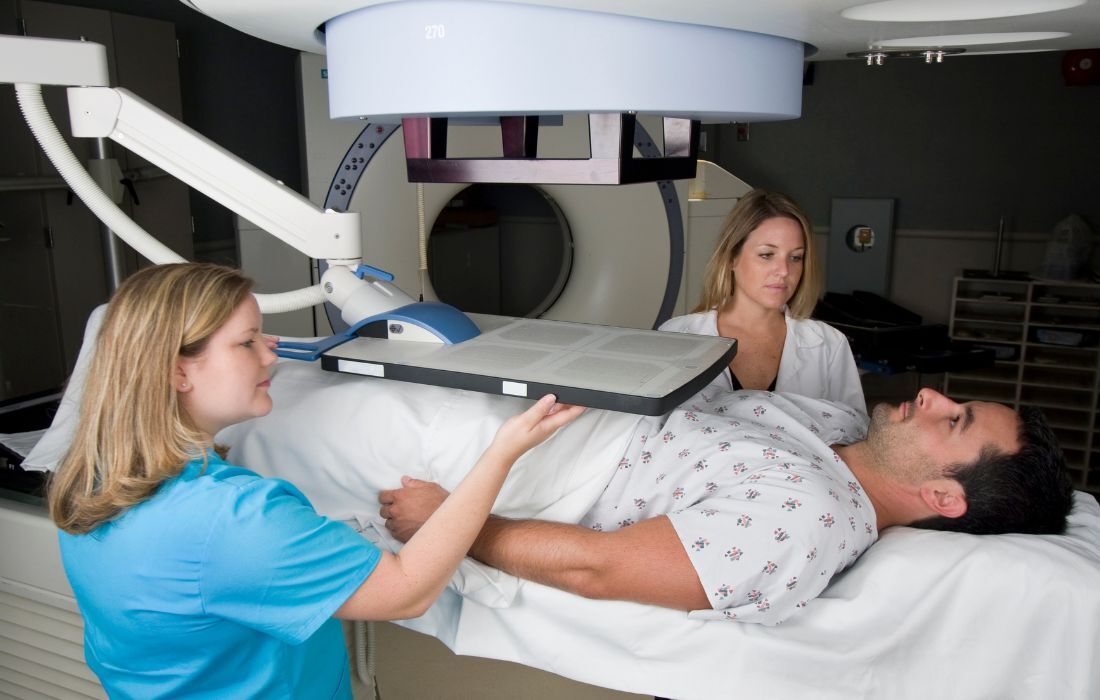November 6, 2024
Following PSA Levels During and After Prostate Cancer Treatment

Did you know that prostate-specific antigen (PSA) tests are not only used for prostate cancer screening but also to provide insight into the effectiveness of prostate cancer treatment? Even after surgery to remove the prostate, you'll need a PSA test every few months to be sure that the levels remain low.
This can cause some anxiety, especially if the results aren't clear. Let’s look at what’s normal for PSA levels during and after cancer treatment to help you feel more comfortable when you go in for your follow-up tests.
PSA Level Helps Your Oncologist Monitor Cancer Growth
While PSA is not the only factor influencing cancer behavior, it is useful for your oncologist to know your levels. Discuss expected PSA levels with your prostate cancer doctor to understand what is considered normal and what might be cause for concern. While PSA levels vary from day to day, consistently higher levels of PSA during or after treatment could mean the cancer is still growing and more action should be taken.
PSA Levels Before and During Prostate Cancer Treatments
PSA levels will vary based on the type of prostate cancer treatment you receive. Your oncologist will review your PSA levels before treatment starts and compare them to where you are afterward to be sure you’re on a downward trend.
PSA Levels While You’re in a Watchful Waiting Period
You and your prostate cancer doctor may have decided that immediate treatment is not necessary and active surveillance or watchful waiting would be sufficient. During this period, your prostate cancer specialist will closely monitor your diagnosis, symptoms, PSA levels, and other factors to determine if the cancer is growing. Whether further action, such as a prostate biopsy or treatment, is necessary will depend on the results of these tests at follow-up appointments.

PSA Levels During Advanced Prostate Cancer Treatment
PSA levels can help determine if advanced prostate cancer treatments such as chemotherapy, immunotherapy, or hormone therapy are effectively working or if it's time to consider a different treatment.
Treatments can lower PSA levels, prevent further rise, or slow the increase. Cancer symptoms and imaging test results also play a crucial role in determining the need for treatment changes.
If the cancer has spread beyond the prostate, the actual PSA level may be less important than the direction and speed of its changes. The PSA level itself cannot predict whether a man will experience symptoms or how long he will live. Some men with very high PSA levels feel fine, while others with low PSA levels may have symptoms.
PSA Levels After Prostate Cancer Treatments
PSA Levels After Radical Prostatectomy Surgery
PSA is released only by the prostate, so surgically removing the gland should reduce PSA levels in the body to undetectable levels within a couple of months. However, there are instances when even tiny amounts of PSA are detected during a follow-up test. This doesn't necessarily indicate that a new tumor is developing. It could mean some cells in the body are still producing PSA, but these aren't necessarily cancerous.
Any detectable PSA after radical prostatectomy can still cause concern for some men. Discussing this with your doctor to understand what it might mean and develop a plan is best. If your PSA levels are decreasing slowly, your doctor might recommend postponing additional treatment until they can better understand the situation. PSA levels that are rapidly rising will likely require immediate treatment. Generally, men with a shorter PSA doubling time (the time it takes for the PSA level to double) tend to have a poorer prognosis than those with longer doubling times.
PSA After Radiation Therapy Treatments for Prostate Cancer
Unlike surgery, radiation therapy doesn't eliminate all the cells in the prostate gland, so PSA levels will not drop to an undetectable level, as some normal prostate cells will still produce PSA. PSA levels may decrease more slowly compared to after surgery, and in some cases, they might only reach their lowest level two or more years after treatment.
Typically, an oncologist will monitor PSA levels every few months to look for patterns. A one-time increase in numbers does not necessarily mean the cancer has returned. However, you may need to repeat the test in a few weeks or months to determine if the PSA level is still rising. Your prostate cancer specialist will evaluate your numbers and recommend additional testing as necessary, including assessments to determine how fast the PSA is rising.
Some men may experience a PSA bounce, which can occur after external beam radiation and brachytherapy. If this happens, PSA levels rise slightly within the first couple of years after treatment, followed by a decrease. Although the reason for this is unclear, it does not appear to impact a man's prognosis.

Don’t Skip Your Cancer Follow Up Appointments
When you’re feeling well, skipping follow-up appointments with the urologist and oncologist is easy. Try to schedule and attend each appointment they recommend. During the appointment, they will talk to you about how you’re feeling and run tests, such as a PSA test and possibly imaging tests, to see if there is anything of concern that can be treated more easily when found early.
Expert Prostate Cancer Care in Brevard County
If you were diagnosed with prostate cancer, the prostate cancer specialists at Cancer Care Centers of Brevard are here to help. We consider your specific diagnosis to create a thorough treatment plan that includes regular monitoring of your PSA levels. We provide advanced treatment options and offer second opinions to ensure the best care for you.
Our prostate cancer doctors are located throughout Brevard County, in Melbourne, Merritt Island, Rockledge, and Palm Bay, Florida. Find a location nearest you to request an appointment with a prostate cancer doctor.
Categories: Prostate Cancer